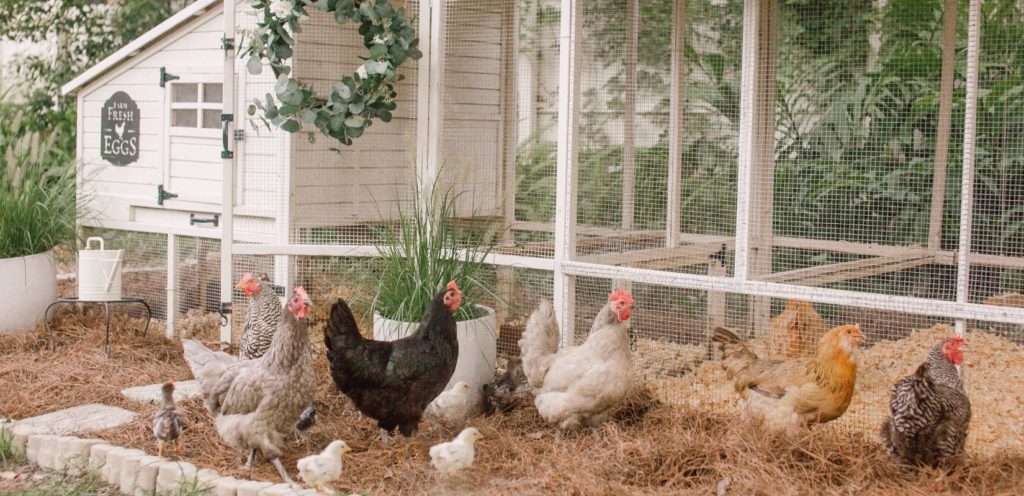
Raising backyard chickens is a rewarding hobby that provides fresh eggs, natural fertilizer, and a fun way to connect with nature. Whether you’re looking to embrace a more sustainable homestead lifestyle or enjoy fresh eggs daily, starting your own backyard flock can be a fulfilling adventure. Here’s a step-by-step guide to get you started.
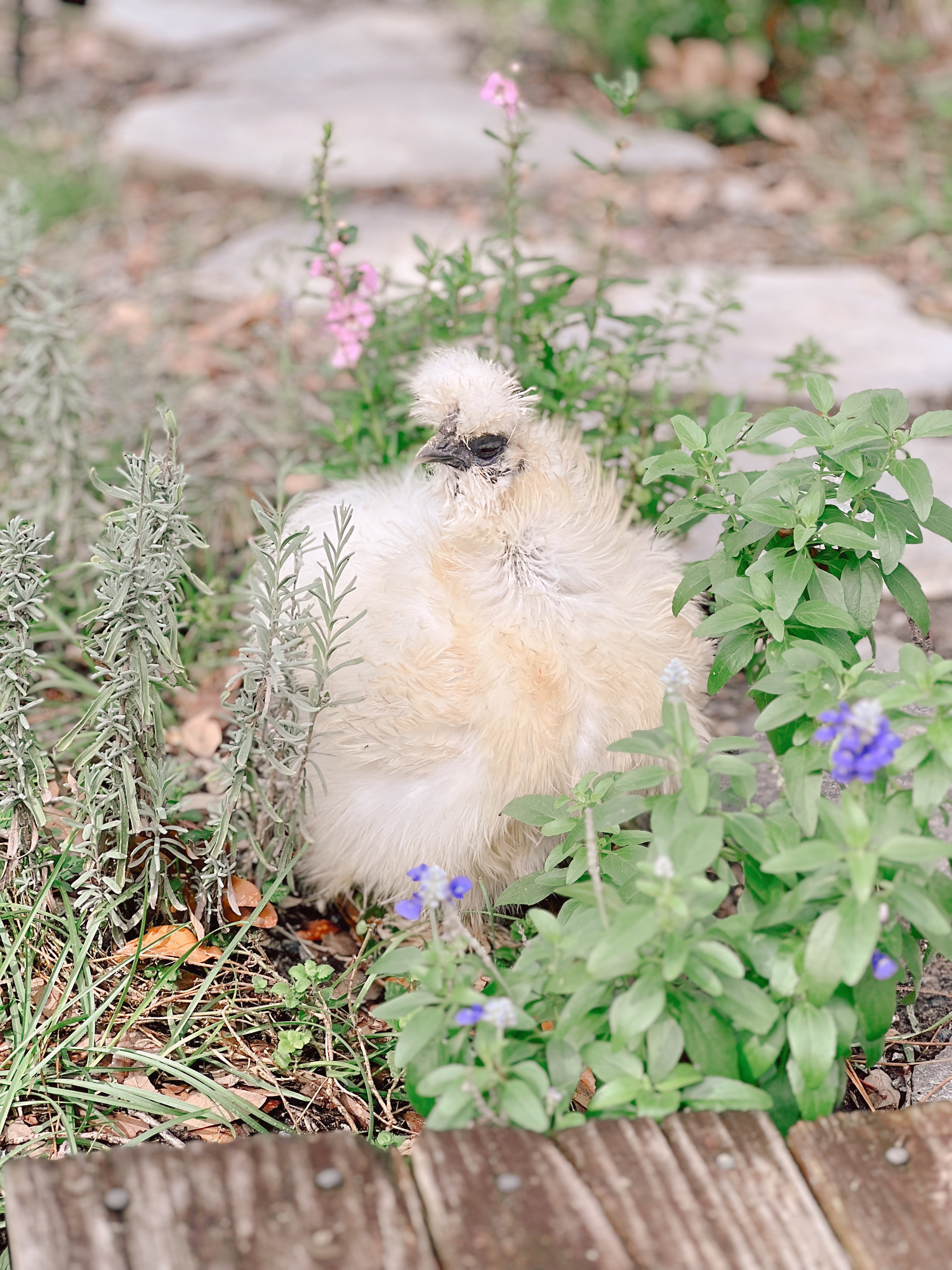
1. Check Local Regulations
Before getting too excited, it’s essential to check your local laws. Some areas have strict regulations regarding backyard chickens, including limits on the number of birds you can keep, prohibitions on roosters, and coop placement restrictions. You don’t want to invest time and money only to find out it’s not allowed in your area.
2. Choose the Right Chicken Breed
Not all chickens are the same. Some breeds are excellent egg-layers, others are prized for their meat, and some are dual-purpose. Popular breeds for egg production include Rhode Island Reds, Leghorns, and Buff Orpingtons. Consider your climate, as certain breeds handle cold or heat better than others. For beginners, look for hardy, easy-to-care-for breeds.
My very first chicken was Miss Dixie above, a beautiful white frizzle Silkie, who has outlasted all our other chickens over the years. But I quickly learned, while Silkies are beautiful, they don’t lay as many eggs as other breeds, and their eggs are much smaller. Also, it can be tricky to merge bantam size breeds like Silkies with full size hens of other breeds. After years of no issues, we recently had to separate Dixie from the rest of the flock because pecking order got too rough for her. She’s now become our indoor pet chicken!
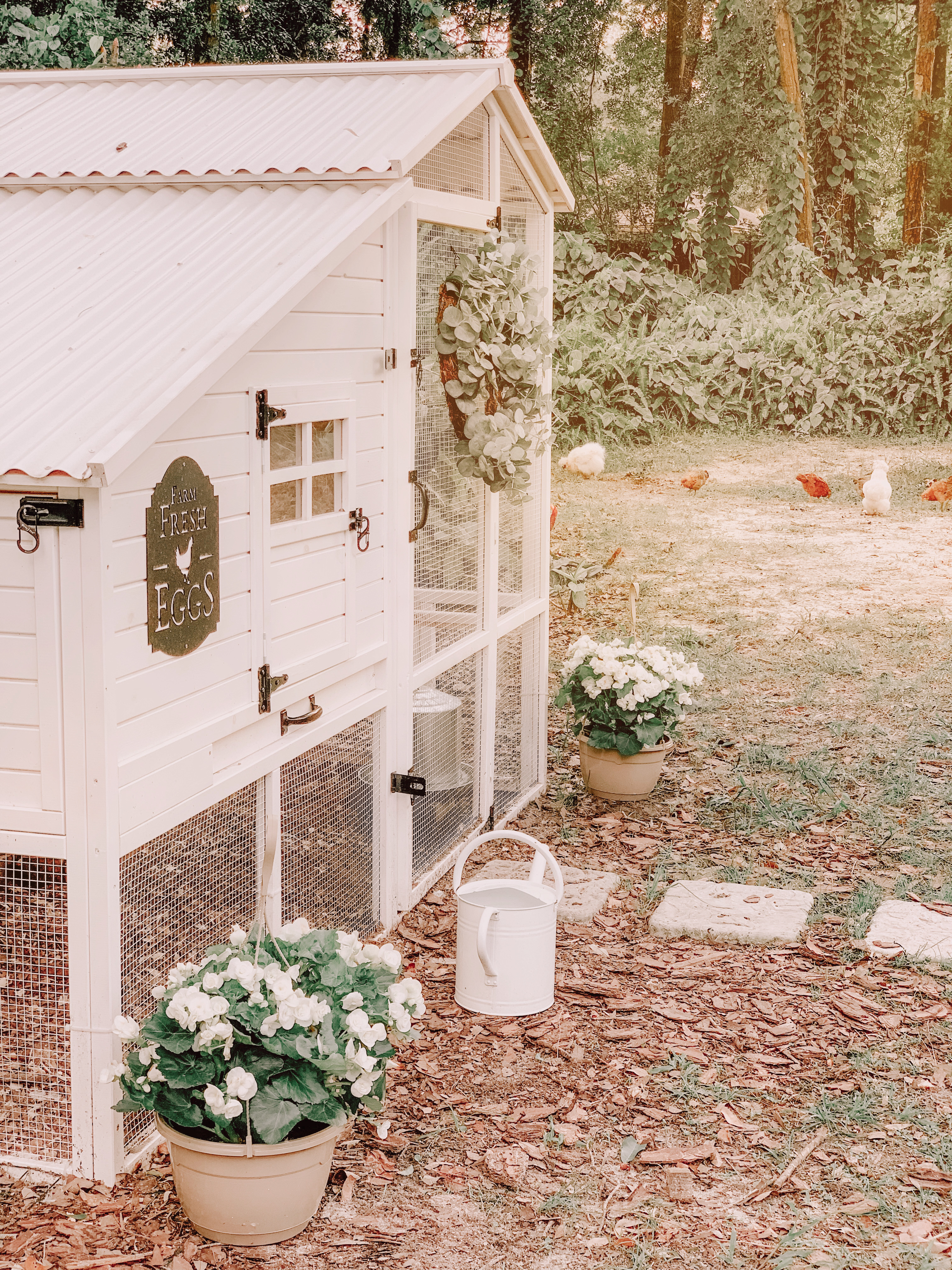
3. Plan Your Coop
While fancy coops are a beautiful way to start off your chicken raising adventure, they can often be quite expensive for a beginner to start with. If you are just starting out with a small flock, I just suggest starting with a basic coop, and you can upgrade their home as your flock grows, or later add on a long run like we did to ours.
A well-designed coop is essential for your chickens’ health and safety. Each chicken needs 2-3 square feet inside the coop and 8-10 square feet in the run. The coop should be predator-proof, well-ventilated, and easy to clean. Include nesting boxes for egg laying (1 box for every 3-4 hens, though it is completely normal for them to fight over the same nesting box for the whole flock) and roosting bars for them to perch on at night. Plan for easy access to the coop for feeding, cleaning, and collecting eggs.
Coop Essentials:
• Nesting boxes with clean bedding
• Roosting bars off the ground
• Predator-proof latches and fencing
• Adequate ventilation and lighting
4. Feeding Your Flock
Chickens need a balanced diet to stay healthy and productive. As chicks, you will feed them Start & Grow feed. But once they starting laying their first eggs around 16-24 weeks of age, you will change this to provide them with a high-quality commercial layer feed, which includes essential nutrients like calcium for strong eggshells. You can supplement their diet with kitchen scraps, greens, grains, and occasional treats like mealworms. If you ever want to train your chickens or round them up to go back to the coop when free ranging, just shake a bag of mealworms and chickens will fly from across the yard for their favorite treat! Fresh water should also be available at all times, and make sure their feeders and waterers are kept clean to prevent illness.
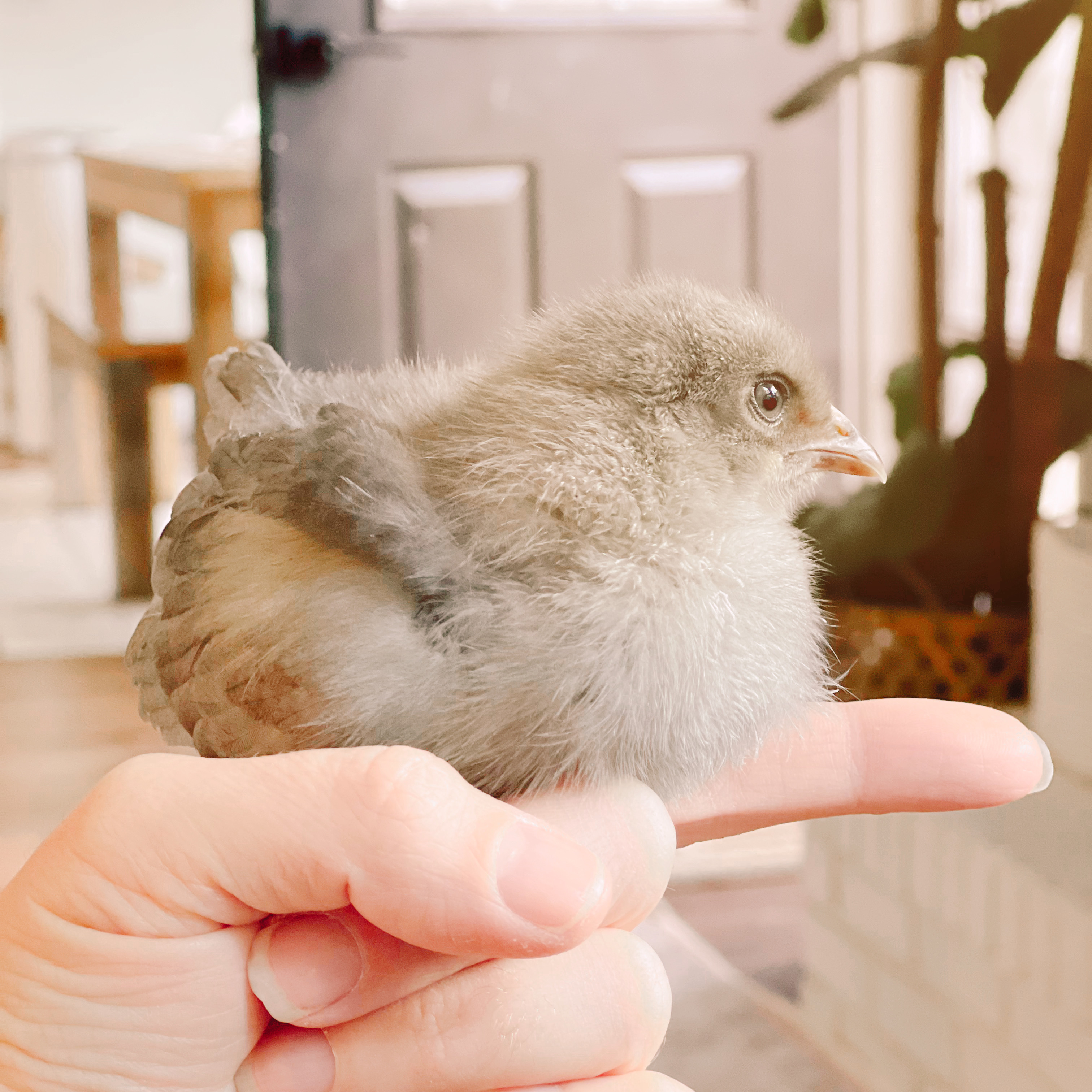
5. Caring for Chicks
If you’re starting with baby chicks, you’ll need a brooder box—a small, warm, safe space for them to grow during their first few weeks. Chicks require heat, so set up a heat lamp and keep the temperature around 95°F for the first week, lowering it by 5°F each week until they’re fully feathered. Feed them chick starter feed and provide fresh water daily.
6. Understanding Chicken Behavior
Chickens have a social structure known as the “pecking order.” This hierarchy determines their ranking within the flock, and new chickens introduced to the group may be pecked or chased. It’s important to monitor their interactions, especially when introducing new birds, to prevent bullying. Chickens are generally curious, active, and social animals, so giving them space and enrichment, like dust baths or garden scraps, can keep them happy.
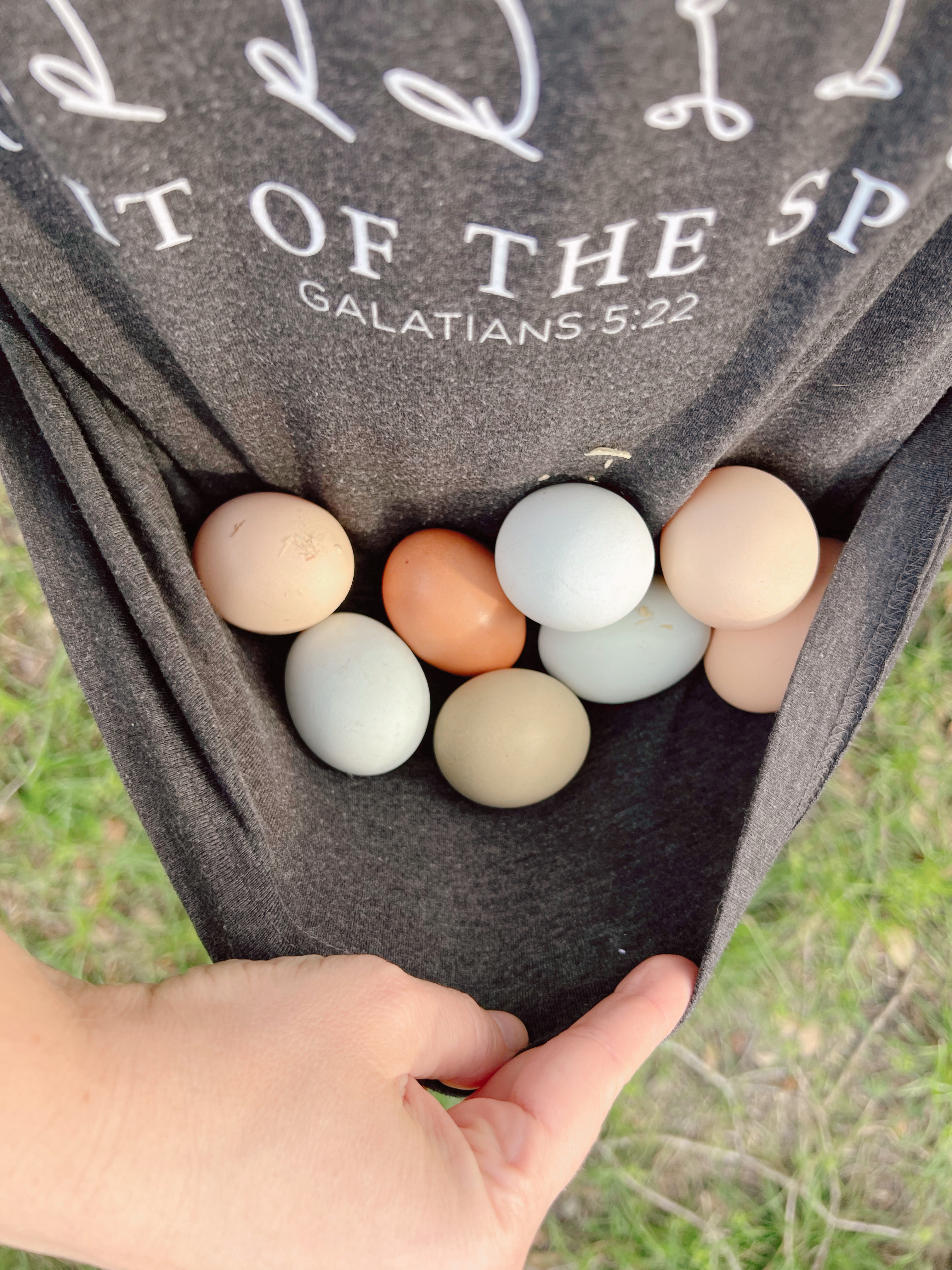
7. Collecting Eggs
One of the best parts of raising backyard chickens is collecting fresh eggs! Make sure to check for eggs daily, especially in hot or cold weather to prevent them from spoiling. Most hens start laying at around 5-6 months old, and you can expect an average of 5-7 eggs per week, depending on the breed and season.
8. Seasonal Care
Chickens require different care based on the season. In winter, ensure the coop is well-insulated and protect the water from freezing. Some owners add supplemental lighting to maintain egg production, as hens need about 14 hours of light to lay consistently. In summer, keep the coop cool by providing shade, good airflow, and plenty of fresh water. Heat stress can be dangerous, so monitor your flock closely during hot months. Here in Florida, at the beginning of summer, I like to buy a large watermelon and slice it up and freeze it. Frozen watermelon is a great popsicle treat for chickens to help keep their body temperature regulated on the hot days!
9. Keeping Chickens Healthy
Healthy chickens are happy chickens! Regularly check your flock for any signs of illness, such as lethargy, sneezing, or unusual behavior. Keep their living area clean to prevent diseases and parasites. Common chicken ailments include mites, lice, and respiratory infections, so it’s essential to be proactive with cleanliness and ensure they have proper nutrition and ventilation.
10. Enjoy the Journey!
Raising chickens is a learning experience. You’ll discover their unique personalities, enjoy fresh eggs, and find joy in watching them forage and interact with each other. Chickens can live up to 8-10 years, so they are a long-term commitment. However, with the proper care and attention, they’ll provide you with years of fresh eggs, natural pest control, and companionship.
Final Thoughts
Getting started with backyard chickens doesn’t have to be complicated. By preparing ahead, understanding their needs, and committing to their care, you can enjoy the many benefits they bring to your home and garden. From fresh eggs to organic fertilizer, raising chickens can be a fun, sustainable way to contribute to your household.
In my Amazon Storefront, I’ve put together a list of beginner items to get you going! >>> SHOP HERE
By following these steps, you’ll be on your way to raising a healthy and productive flock that will provide you with fresh eggs and endless entertainment! My feather babies each have their own personalities and names, and have truly become a part of our family!


Leave a Reply